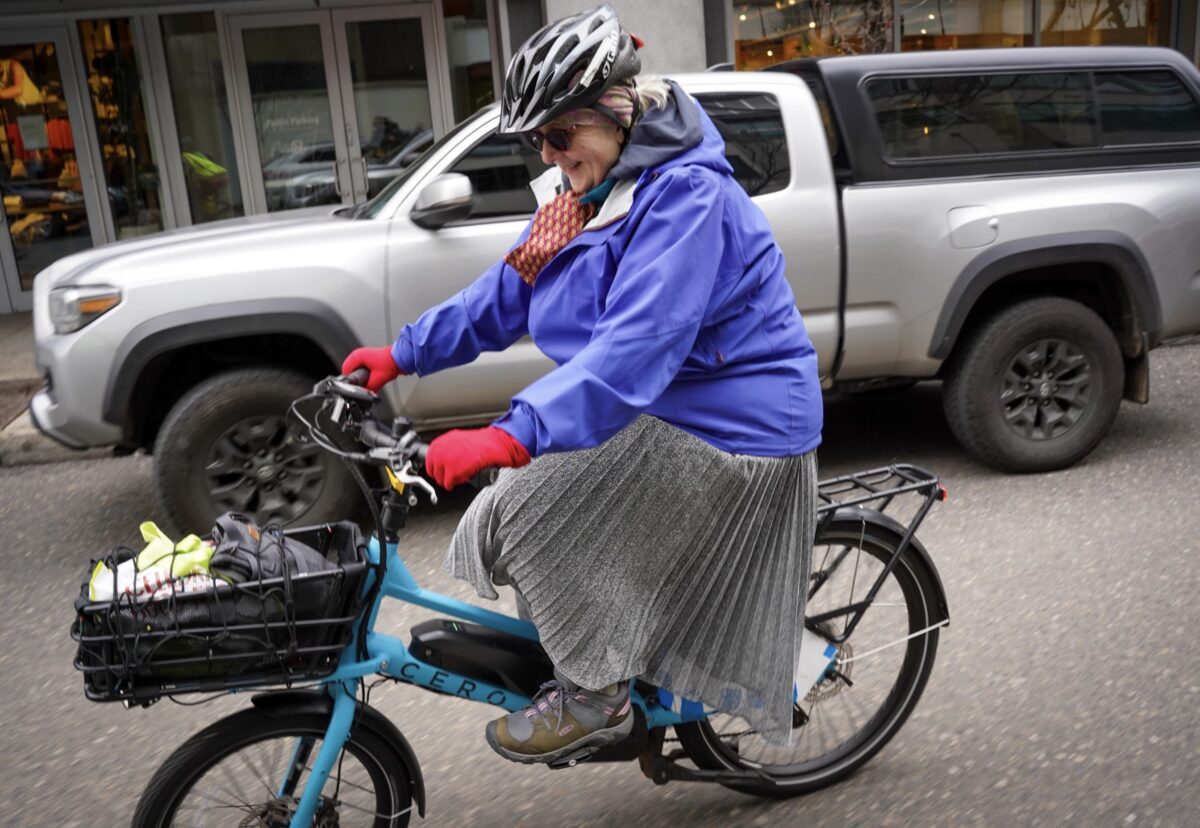
“The increased popularity means greater demand on already subpar active transportation infrastructure that fails to meet our climate or safety requirements and goals.”
– Electric Bikes For All coalition
A broad coalition of business owners and nonprofit organizations who are pushing for more electric bicycle use in Oregon are sounding an alarm about the lack of safe infrastructure after a fatal crash in northeast Portland earlier this month.
The Electric Bikes For All coalition has written a letter to Oregon Department of Transportation Region 1 Director Rian Windsheimer and Portland Bureau of Transportation Director Chris Warner that warns of more deaths as the popularity of e-bikes skyrockets far above the safety of streets they are used on.
The crash that spurred the letter happened on June 7th when a man was hit while riding an e-bike on NE 102nd at Glisan. As we reported at the time, the victim was dragged 600 feet as the driver of the truck sped away and fled the scene.
“Electric bikes continue to grow in popularity, expanding the types and distance of trips that people are able to make,” the letter states. “The increased popularity – not just for e-bikes but for all individual mobility from classic bikes to e-scooters – means greater demand on already subpar active transportation infrastructure that fails to meet our climate or safety requirements and goals.”
The group goes on to say that the top excuse Oregonians make for not buying an e-bike is that roads are unsafe. Urgency for better bike infrastructure grows when you consider that e-bikes are a feasible and attractive option for a much wider range of people than acoustic/analog bikes. As the price of e-bikes falls, so does their appeal and the need to expand the network of safe routes well beyond Portland’s central city.
Here’s more from the letter:
“It is imperative that we create and maintain safe streets for these new riders… While there are many benefits to light transportation, without separated facilities they add vulnerability to users when competing with automobiles.”
The group makes two specific recommendations: Make protected bike lanes a default treatment and add automated traffic cameras across the city’s entire “high crash network”.
Below is the list of signatories:
Kiel Johnson
Chair – BikeLoud PDX
André Lightsey-Walker
The Street Trust
Brenna Bailey
ABC (Andando en Bicicletas en Cully)
Barrett Brown
Forth
Sara Wright
Oregon Environmental Council
Neil Bausgard
The Environmental Center
Sarah Waits
The Outer Rim Bike Shop
Lenny Dee
Onward Oregon
Alan Acock
Mid-Valley Bicycle Club
Steve Abbott
Climate Revolutions by Bike
Molly Conroy-Schmidt
Go By Bike Valet
Helen Hitt
Cynergy E-Bikes
Claire Vlach
Oregon Walks Plans and Projects Committee
Melinda Hanson
Electric Avenue
Eli Spevak,
CEO – Orange Splot LLC
Megan Ramey
Bikabout.com and Active Transportation Rep-at large for ODOT Region 1 ACT



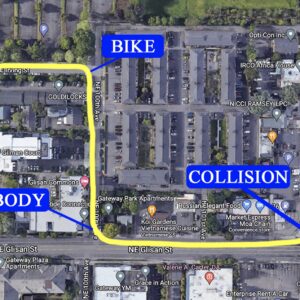
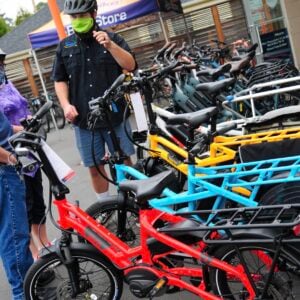
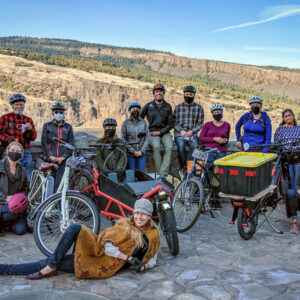
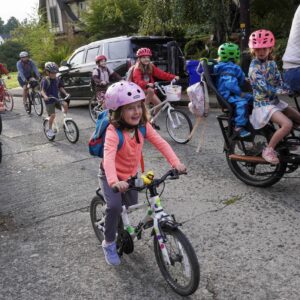
Thanks for reading.
BikePortland has served this community with independent community journalism since 2005. We rely on subscriptions from readers like you to survive. Your financial support is vital in keeping this valuable resource alive and well.
Please subscribe today to strengthen and expand our work.
And then who will protect the cyclists from the ebikers?
Those high speed electric motorcycles have no business being on paths and bike lanes.
Who protects the pedestrians from the cyclists?
Maybe it should be who’ll protect us from bad behavior no matter what movement conveyance they are using?
I find the term “acoustic/analog bikes” very ironic as regular human powered bikes are usually much quieter than their electric cousins and their internal engines are far more sophisticated and intelligent, particularly compared to users who have 28+ mph ebikes that still must somehow stop with 6″ disc brakes.
We all want protected bike lanes as the “default” infrastructure and dare I say it, protected intersections, but when are we going to start discussing how we are going to pay for it?
Remember this from Vision Zero? Better infrastructure + slower users/drivers = fewer deaths and serious injuries. We need 20 mph governors on all cars, trucks, and ebikes with the safer infrastructure PLUS ebike brakes that actually can stop the ebike when it’s going over its designed speed.
No one is ever like “how are we going to pay for the luxury of stop lights?”
The fixation on separation is a big part of the problem. In a dense urban environment, people’s paths frequently cross. “Separation” on straightaways doesn’t change that — i.e. where it matters most.
Being out of the line of sight and out of the line of flow may feel nice, but it provides a false sense of security and sets you up for more right and left hooks as well tbones at conflict points — especially as speeds increase.
Roads can be improved, but they’ll never be “safe.” And let’s not kid ourselves. Few will ride in heat, cold, darkness, or wet. The places that are empty most of the year get downright crowded when weather is perfect and it’s not like the infrastructure changed.
It’s an easy slide to get accustomed to faster speeds when all it takes is a motor assist. The faster you go, the more likely accidents will be significant. I’m not speaking for this June 7th accident in the article, but I have seen complacency, speed, and numbers of riders increasing and I fear for the new accidents. I also wonder how many people are opting for electric assist and would do better in the long run to work their body harder.
As someone who commutes from Vancouver to Portland for work, I was having to choose between riding everyday and being able to spend time with my child and put him to bed which is so very precious to me. Now that I have an e-bike, I can do both Would more exercise be good for my physical health? Absolutely. But spending more time with my child has benefits as well. I also am someone who has to deal with a chronic disease that can kick my butt for periods of time and my e-bike allows me to still ride. My e-bike gets me out of my motor vehicle and on a bike, even if that is a PAS e-bike.
I always loved Luka Bloom’s clever play on words in the song “Acoustic Motorbike”, but I’ve never hoped we’d actually need to use it to distinguish bicycles from some other device. We need a moped-like term for e-bikes (or just use moped–it’s not getting much action) so that bikes can just be bikes again.